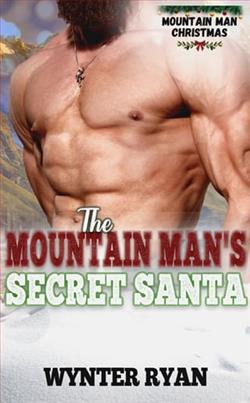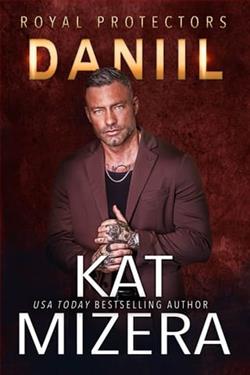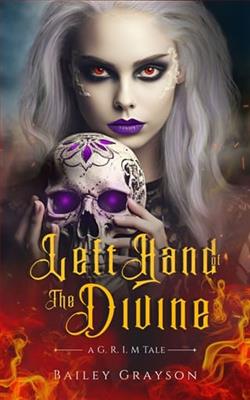Page 8 of False Heir
My father always had really great concierge doctors on call just in case something happened, and with his help, Dr. Hawthorne had expanded well past the state limits of Delaware.
Before I even reached the door, it swung open and Dr. Sylvan Bauman stood there, his face a mask of professionalism tinged with concern. He’d helped me before, and I had texted him to know I was on the way, but he didn’t look particularly impressed when he saw me.
“Inside, quickly,” he instructed, ushering me into the warmth of the clinic. The smell of antiseptic filled my nostrils as he led me down the hall to a private room, the sterile environment a stark contrast to the gritty world I operated within.
“Sit. Take off the shirt,” Dr. Bauman ordered, his tone brooking no argument. I complied, wincing as the fabric stuck to the wounds. Even moving my arms up hurt an excruciating amount.
“Tristan, you know better than to let it get this bad,” he chided me gently as he began to assess the damage. His hands were steady and efficient, cleaning the cuts with a practiced ease that belied the gravity of the situation.
“Occupational hazard,” I replied with a grunt, trying to make light of it despite the throbbing pain.
“Your occupation shouldn’t include getting shot at,” he retorted, but there was no real heat in his words. He worked swiftly, bandaging my wounds with a deftness that spoke of years of experience dealing with injuries far worse than mine.
“And yet here we both are,” I said simply.
He nodded. “Indeed.”
“Thanks, Doc,” I said as he finished up, feeling a fraction more human now that the bleeding had stopped. His nod was curt, a silent acknowledgement of the unspoken agreement between us—no questions asked, no answers given. “Can I take anything for the pain?”
“I can write you a script for some painkillers,” he said, scribbling down a prescription. “And give you a few samples. But I advise you to lay low for a few days. Your body needs time to heal.”
A bitter laugh escaped my lips as I accepted the slip of paper. “I don’t have that luxury, Doc.”
He gave me the samples of a couple of giant horse pills, and I swallowed them dry.
Dr. Bauman shook his head in disapproval but knew better than to argue with me further. He had seen many like me come through his doors—men who lived life on a razor’s edge. He was employed by Dr. Hawthorne, after all, and her craft was looking after our men.
So this shouldn’t have been anything special. But he looked oddly disappointed. I didn’t have time to deal with him.
With a sharp nod, I thanked him and made my way back to my car. The night was colder now, the moon a distant beacon illuminating the empty streets. Back into the lion’s den I had to go, back into the world of danger and uncertainty that was my life.
Stepping back into the night, the chill seemed less biting now. I had been patched up, but the real work was just beginning. The Crooked Thorn awaited, and with it, the next round in this never-ending fight for power, for survival, for family.
I drove away quickly, feeling a little bit better. It didn’t take long before I got to the pub. The Crooked Thorn loomed in the darkness like a fortress, its dimly lit windows a beacon in the night. I pushed through the door, my senses immediately assaulted by the cacophony of clinking glasses and low murmurs—a deceptive calm that masked the turmoil beneath.
Sean was at my side before I could scan the room, his grim expression cutting through the smoky haze. “Tristan,” he began, voice low, “we’ve had a situation.”
“You said,” I replied. “Do you know who it was?”
“Rossis, I think,” Sean said.
“But they were…” What? Injured in my living room? That didn’t really matter, considering that Nick could make a call and have things go fucking crazy just by using his cellphone. And he was probably prepared for contingencies.
“Yes, boss?”
“Nothing. Carry on,” I replied, flagging the bartender down so she could get me a drink.
“They’re getting bolder. Tried to stake a claim on our territory. It got ugly fast.” His words were clipped, tension radiating off him in waves.
“Any casualties?”
“Minor injuries, thankfully. But it’s a clear message—they’re testing us.”
I shook my head. This made no sense. He said we were under siege. Everything seemed fine, at least at first glance. “I don’t understand. Then why were you so shaken?”
“They, uh, were talking about our families,” he said.
A cold shiver of dread pierced me. I thought I got it now. “What did they say?” I asked, my voice sharper than intended. The mention of family always cut through my tough exterior, revealing the raw vulnerability beneath.















